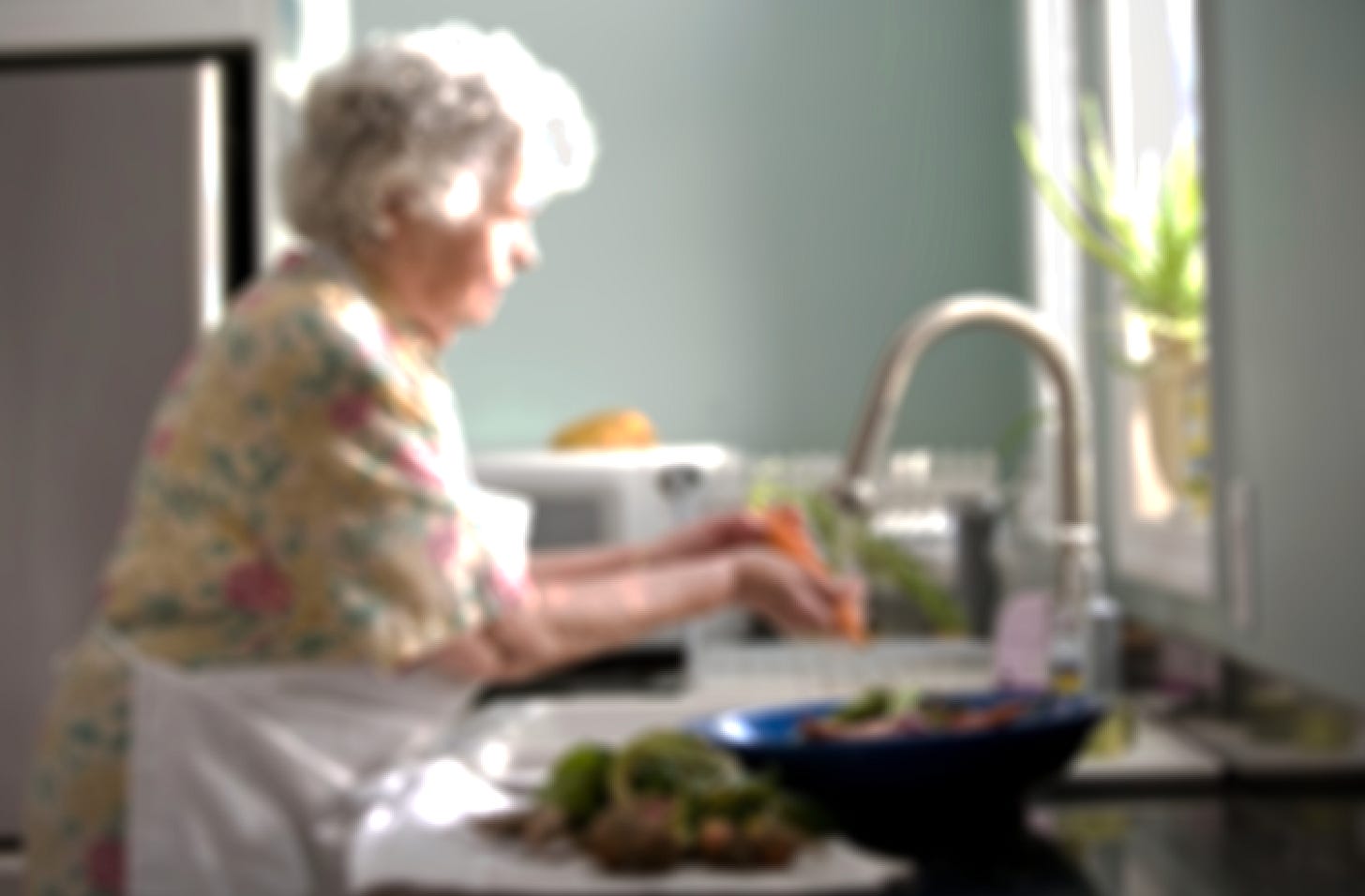The Day My Mother Stopped Cooking
We're all lost in the kitchen
My son and I were greeted by my father at the front door, but it wasn’t until I entered my parent’s kitchen that I saw my eighty-five-year-old mom.
She was standing next to an empty cutting board and a bare counter. She turned to me with a puzzled look, like she had a question she wasn’t sure how to ask.
My parents live about an h…




